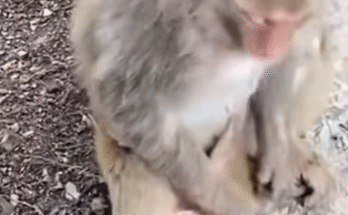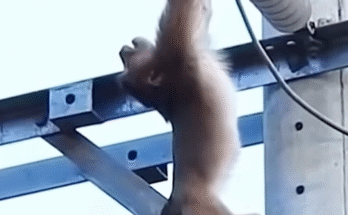The wind howled across the rooftop, tugging at Mira’s hair as she stood near the edge of the twenty-meter building. Below, the city pulsed with life—car horns, distant laughter, the faint cry of a baby somewhere. Her arms still ached from holding her own child, hours earlier, when he refused to sleep, when his fever spiked, when every breath felt like a test of love and endurance.
Mira was tired—bone-tired, heart-tired. The sleepless nights had blurred into one endless day. The world had stopped seeing her; she was no longer Mira, the woman who painted, dreamed, laughed. She had become a machine for feeding, soothing, surviving.
She closed her eyes, the rooftop gravel crunching beneath her shoes. “Just one moment of quiet,” she whispered, barely audible over the wind. For a second, she imagined what peace might feel like—no cries, no exhaustion, just silence.
Then she heard it. A small giggle. It floated up from the stroller parked safely by the stairwell. Her son’s laugh—pure, unknowing, impossibly light. Something in her cracked open, not from despair, but from the fragile reminder that she was needed, still tethered to life by that tiny sound.
Mira stepped back from the edge. The city below continued to hum, unchanged, but within her something shifted. She gathered her baby into her arms, pressing her cheek against his soft hair.
The exhaustion was still there—but so was love, fierce and real. And that, for now, was enough.


